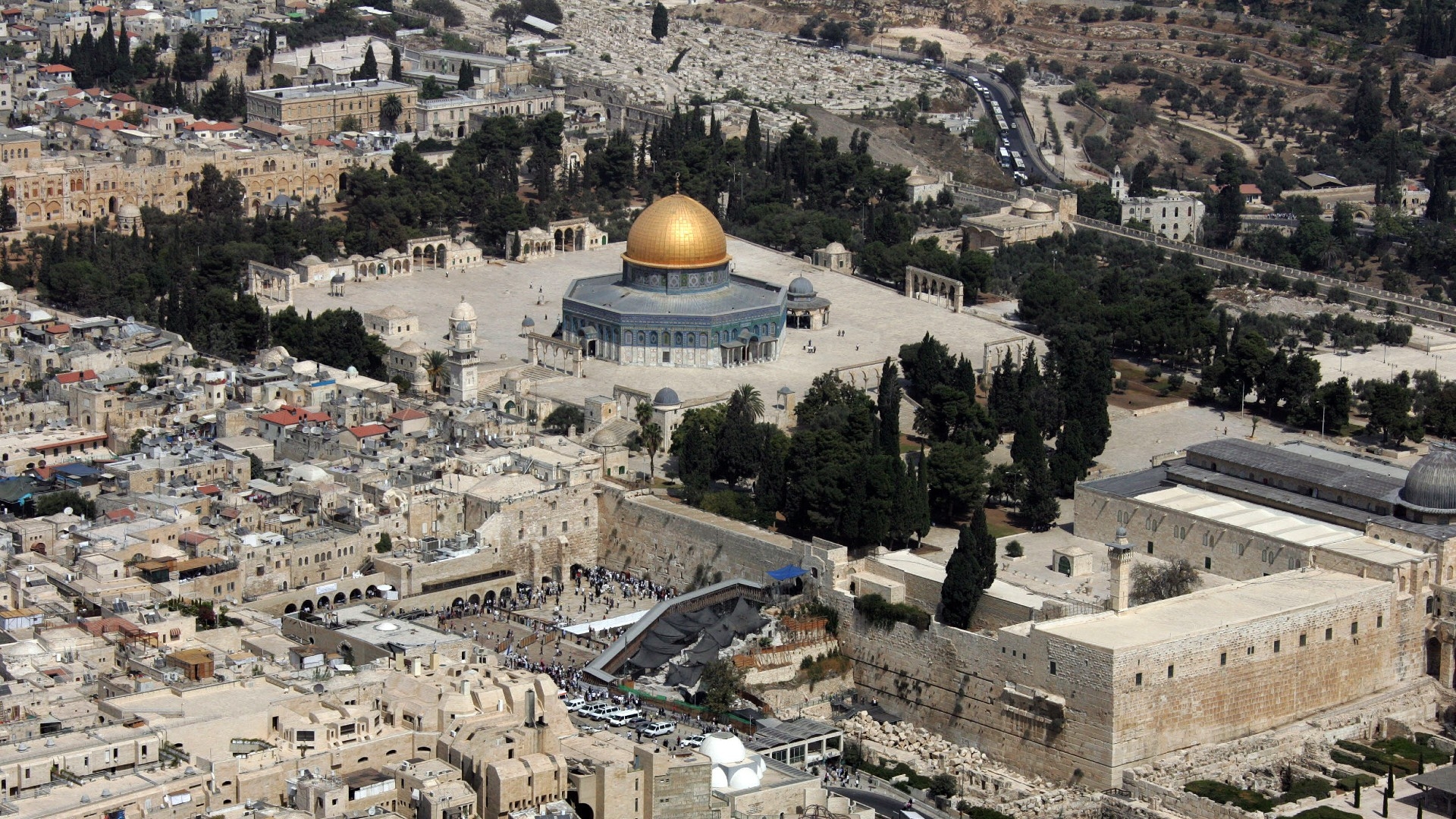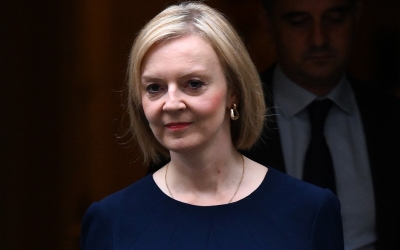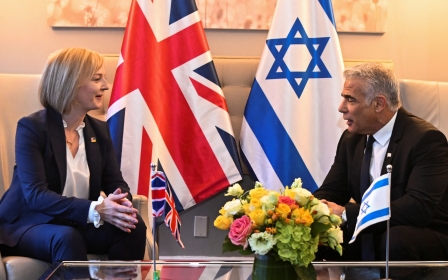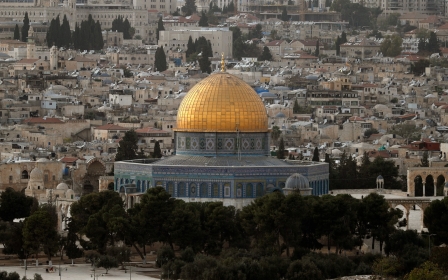Australia no longer recognises Jerusalem as capital of Israel

Australia no longer recognises West Jerusalem as the capital of Israel, reversing the policy adopted by former prime minister Scott Morrison’s government.
In 2018, a year after US President Donald Trump’s decision to move the American embassy from Tel Aviv to Jerusalem, in defiance of international law, Morrison suggested he was “open minded” to follow suit.
The government later decided not to move its embassy until a peace agreement between Israel and Palestine, but that it would recognise West Jerusalem as Israel’s capital.
Foreign Affairs Minister Penny Wong confirmed on Tuesday that the decision had been reversed.
“I regret that Mr Morrison’s decision to play politics resulted in Australia’s shifting position, and the distress these shifts have caused to many people in the Australian community who care deeply about this issue.”
New MEE newsletter: Jerusalem Dispatch
Sign up to get the latest insights and analysis on Israel-Palestine, alongside Turkey Unpacked and other MEE newsletters
Wong said the Labor government “recommits Australia to international efforts in the responsible pursuit towards a just and enduring two-state solution”.
“We will not support an approach that undermines this prospect.”
Israel's foreign ministry condemned the decision, and said it would summon the Australian ambassador.
“Jerusalem has been the capital of the Jewish people for 3,000 years and will continue to be the State of Israel's eternal and united capital, regardless of this-or-that decision,” it said in a statement.
Palestinian Foreign Minister Riyad al-Maliki meanwhile told Reuters the decision was “a correction of a mistake made by the previous government.”
He called on Australia to now “move to the more important step, and that is recognising the state of Palestine in light of its commitment to the two-state solution”.
Deleted sentences
In recent days, Australia's Department of Foreign Affairs and Trade removed references of its recognition of West Jerusalem as the Israeli capital from its website, as first reported by the Guardian.
The deleted sentences read: “Consistent with this longstanding policy, in December 2018, Australia recognised West Jerusalem as the capital of Israel, being the seat of the Knesset and many of the institutions of the Israeli government.
“Australia looks forward to moving its embassy to West Jerusalem when practical, in support of, and after the final status determination of, a two-state solution.”
The update was made following the Guardian’s request for comment on the matter.
The Australian Labor Party, which has been in government since June, said in 2018 that it “does not support unilateral recognition of Jerusalem as the capital of Israel and in government would reverse this decision”.
However the now deleted references to West Jerusalem remained on the website until last week.
“The Australian government continues to consider the final status of Jerusalem as a matter to be resolved as part of any peace negotiations,” a foreign affairs ministry spokesperson said.
Israeli Prime Minister Yair Lapid criticised the policy reversal, describing it as a "hasty" response to media reports.
“In light of the way this decision was made in Australia, as a hasty response to an incorrect report in the media, we can only hope that the Australian government manages other matters more seriously and professionally,” he said on Twitter.
“Jerusalem is the eternal and united capital of Israel and nothing will ever change that.”
In 1967, Israel occupied and annexed the eastern part of the city of Jerusalem, which the Palestinians claim as the capital of a future state, in a move that has never been recognised by the international community or international law.
Last month, British Prime Minister Liz Truss announced her intention to explore moving the British embassy in Israel from Tel Aviv to Jerusalem.
The review has been widely criticised by UK opposition parties, United Nations experts, and senior Muslim and Christian religious figures.
Middle East Eye delivers independent and unrivalled coverage and analysis of the Middle East, North Africa and beyond. To learn more about republishing this content and the associated fees, please fill out this form. More about MEE can be found here.





